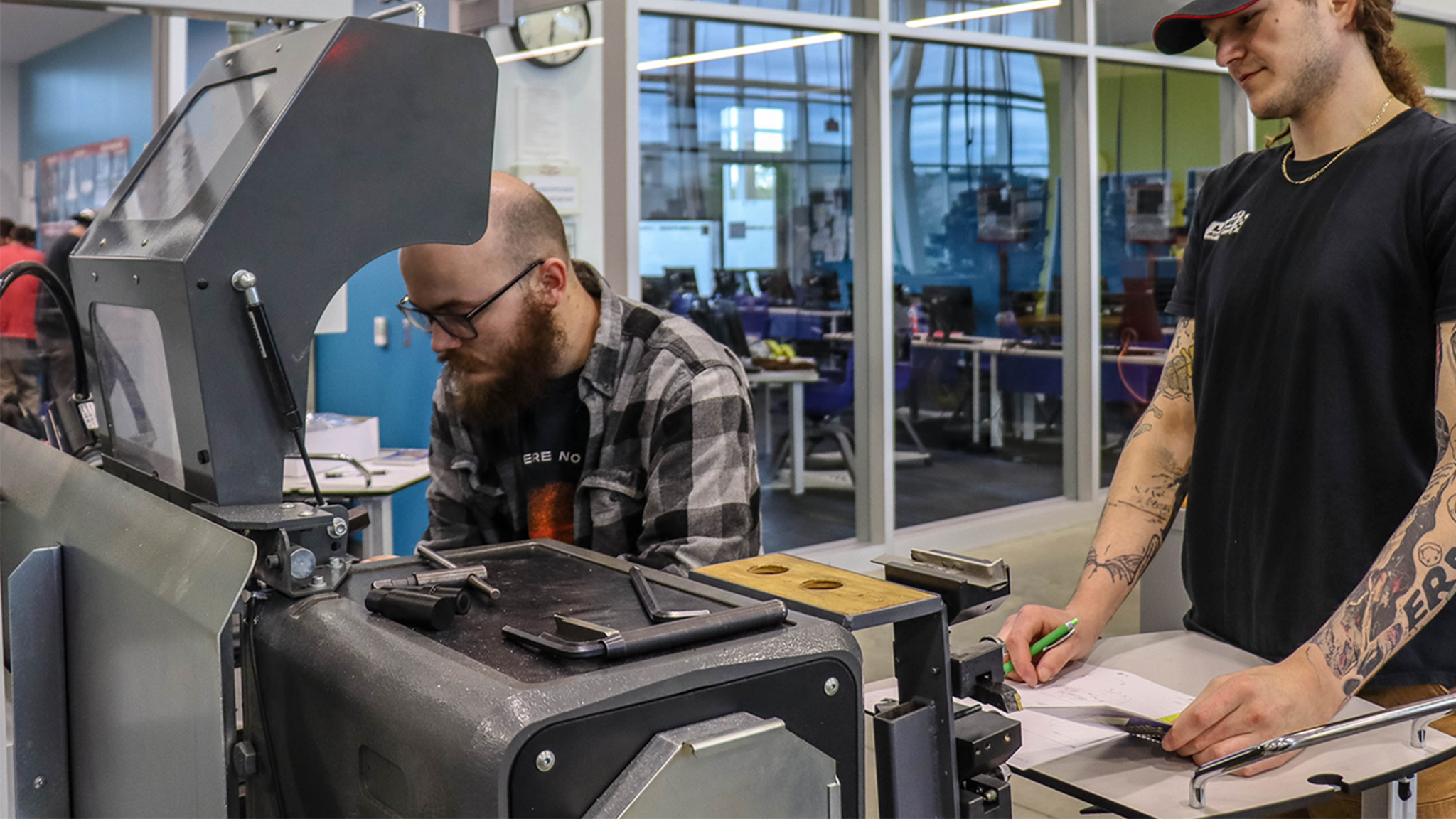
Apprenticeships
Breadcrumb
An apprenticeship is the passing of skills and knowledge from one generation to the next. A formal training agreement ensures the apprentice will receive the proper education and on-the-job training for their craft.
There are hundreds of job titles that can be the focus of a registered apprenticeship; explore the U.S. Department of Labor's apprenticeship website to learn more. The most common trades trained for at Lake Michigan College are tool & die maker, mold maker, industrial maintenance mechanic, and electrical technician. You can find the employment outlook for these jobs from the Bureau of Labor Statistics.
Each job title has a minimum number of on-the-job training hours in addition to a minimum of 144 instructional hours in related training each year for the term of the apprenticeship.
Currently, over 100 students at LMC are involved in an apprenticeship with a sponsoring company. The Apprentice Training Department works with over forty companies that have active apprenticeship programs and is assisting companies in the development of additional programs.
- Sponsoring Company
- Contract
- Coursework
- Registered Apprenticeship-College Consortium
- Apprentice Training Department at LMC
An apprentice is an employee sponsored by a company that has a developed, registered and approved apprenticeship program with the U. S. Department of Labor. Your first step in becoming an apprentice is finding an approved apprenticeship program. The LMC Apprentice Training Department can assist you in finding a company with an approved program if you are not already employed by one.
Company-sponsored training can be available in the following areas:
- Customer service
- Die making
- Electrician
- Lab technician
- Machine repair
- Machinist
- Millwright
- Model making
- Tool & die making
- Welding
A formal contract (the Apprenticeship Training Agreement) is entered into using a form from the Federal Bureau of Apprenticeship and Training. While the structure of an apprenticeship is mandated by the Bureau, the apprenticeship training program is actually owned by the employing firm. The employer’s apprentice committee ensures the academic and on-the-job requirements represent the needs before it is forwarded to the regional Bureau office for approval, thereby "registering" the apprenticeship of the company.
If you have a Related Training of Instruction document reflecting your name and progress, make an advising appointment to register for classes. If you don't have a Related Training of Instruction, contact a member of the Apprentice Training Department.
Once you have completed both academic and on-the-job training requirements, they can receive a Certificate of Completion of Apprenticeship from the Department of Labor once approved by the employer.
Lake Michigan College offers students that have completed an Apprentice program to be awarded a Certificate of Achievement in Skilled Trades Technology, providing a minimum of 30 credits have been completed at LMC. In addition, Lake Michigan College awards those that have completed apprentice programs an Associate in Skilled Trades Technology by combining those classes that they have completed in addition to some general education courses.
Classes that vary from the requirements
Course substitutions and varying from anything other than those course required by the employer is an issue that needs to be addressed by the Apprentice Training department with the employer. Apprentices do not dictate the academic courses.
Experiential/Articulated Credit
If you have taken classes at another institute or have experience equivalent to required coursework, you may qualify for credit. Contact the Apprentice Training Department to make that determination. Your employer would also need to approve for the credit to satisfy the required course.
LMC is a member of the Registered Apprenticeship-College Consortium (RACC). The RACC is composed of employers, labor management groups and associations that have Registered Apprenticeship programs (known as sponsors) and two- and four- year postsecondary institutions. Membership also includes state, regional and national organizations that represent sponsors and colleges.
RACC members agree to accept the college credit value of the Registered Apprenticeship completion certificate as recommended by a recognized third party evaluator for purposes of facilitating the transfer of credit between Consortium member colleges. The consortium is run by the U.S. Department of Labor and the U.S. Department of Education.
Currently, there are thousands of existing articulation agreements between a single college and local Registered Apprenticeship program. The consortium will create a national network of colleges and Registered Apprenticeship sponsors allowing apprenticeship graduates to attend and complete their postsecondary degrees at member colleges.
Academic Advisor
Specializing in Manufacturing, Electrical, Welding, and Engineering
Helping local employers fill their talent pipeline with apprenticeships, internships, job shadowing, and career fairs, and
Read moreDr. Kenneth Flowers is a proud graduate of Lake Michigan College.
Read moreMaster of Science, Career & Technical Education; Bachelor of Science, Vocational Education; Associate of Applied Scien
Read more


